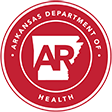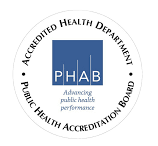ASBN - IV Therapy Guidelines
Nursing Programs - IV Therapy Guidelines
Guidelines for Teaching Content Related to IV Therapy for Arkansas
Licensed Practical Nurses and Licensed Practical Nursing Students
The profession of nursing is a dynamic discipline. Practice potentials change and develop in response to health care needs of society, technical advancements, and the expansion of scientific knowledge. The Arkansas State Board of Nursing developed Position Statement 98-6, Scope of Practice Decision Making Model, to enable nurses to determine if a specific task is within their personal scope of practice. It is recommended that this model continue to be used.
The Practice of Practical Nursing:
The delivery of health care services which are performed under the direction of the professional nurse, licensed physician, or licensed dentist, including observation, intervention, and evaluation, fall within the LPN/LPTN scope of practice.
The performance for compensation of acts involving:
the care of the ill, injured, or infirm;
the delegation of certain nursing practices to other personnel
under the direction of a registered professional nurse, an advanced practice nurse, a licensed physician or a licensed dentist, which acts do not require the substantial specialized skill, judgement, and knowledge required in professional nursing. ACA § 17-87-102 (5)
The Practice of Psychiatric Technician Nursing:
The performance for compensation of acts involving:
the care of the physically and mentally ill, retarded, injured, or infirm;
the delegation of certain nursing practices to other personnel
the carrying out of medical orders under the direction of a registered professional nurse, an advanced practice nurse, a licensed physician or a licensed dentist, where such activities do not require the substantial specialized skill, judgment, and knowledge required in professional nursing. ACA § 17-87102 (6)
Over time, it has become generally acceptable practice for the RN to delegate certain tasks related to intravenous therapy to LPNs and LPTNs who have completed training and have validated competencies. RNs are prohibited from delegating tasks that require the substantial specialized skill, judgment, and knowledge required in professional nursing to an LPN or LPTN.
Minimum training for the LPN, LPTN, or LPN student who will be delegated IV therapy should include:
Anatomy and physiology;
Fluid & Electrolyte Balance;
Equipment & procedures in intravenous therapy;
Complications, prevention, and nursing interventions;
Introducing a peripheral intravenous device on an adult client;
Set-up, replace and remove intravenous tubing for gravity flow and/or pump infusion;
Perform intravenous infusion calculations and adjust flow rates on intravenous fluids;
Monitoring the administration of blood and blood products
Administration of medications through a peripheral intravenous catheter by intravenous piggyback or intravenous push provided the medication does not require the substantial specialized skill, judgment, and knowledge required in professional nursing.
References:
National Council State Boards of Nursing 2003 LPN/VN Practice Analysis
National Council State Boards of Nursing 2001 Detailed Test Plan for the NCLEX-PN Examination
Arkansas Nurse Practice Act
Arkansas State Board of Nursing Position Statement 98-6 Decision Making Model


